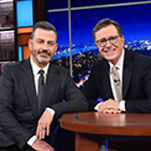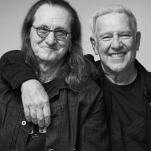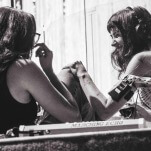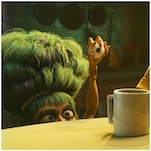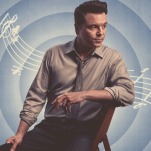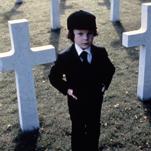The Best Stand-up Comedy Specials on HBO Max
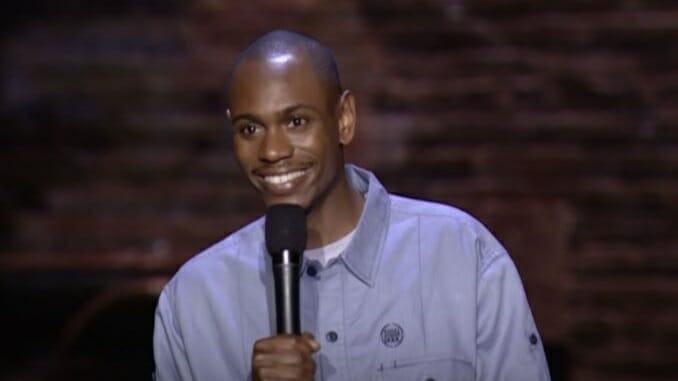
HBO ruled stand-up for decades. If you were a comedian, landing an hourlong special on HBO was one of the biggest signs that you were a success—confirmation that all the time spent on stage and on the road had driven you to the top of your field. That faded a bit over the last decade, as Netflix lured away the biggest comics with absurdly huge, multimillion dollar deals, but HBO pivoted with a sharp eye for talent, giving specials to some of the best rising comedians in the business. And so the stand-up lineup on HBO Max is a fascinating mix of the biggest names in the history of the business and some of the most innovative voices of the last few years.
When you go looking for stand-up on HBO Max, you’ll quickly notice two things. First off it’s unnecessarily complicated just trying to find the stuff; if you search “standup” or “stand-up” in the app it’ll return dozens of comedy movies and shows with almost no actual stand-up listed. You’ll have to open the dropdown menu, go to Comedy, and then go to Specials to find it. And even then it won’t include any of HBO’s regular stand-up series, like the One Night Stand series of half-hour specials that ran throughout the ‘90s.
You’ll also find that the selection is surprisingly small given HBO’s long history of stand-up, and missing some of the biggest specials that premiered on the channel. Obviously HBO wasn’t thinking about streaming when they signed comedians to deals in the ‘70s through ‘00s, and so they probably don’t own those rights. George Carlin released 14 specials on HBO, and not a single one is on HBO Max. Chris Rock’s breakout special, and still his best, isn’t on HBO Max. Robert Klein was featured in the first HBO stand-up special in 1975, and made eight more for the channel over the next 35 years; only a few are now streaming on Max. Compared to HBO’s legendary rep for stand-up, HBO Max’s shelves are relatively bare.
Of course, a lot of those older specials don’t really hold up so well today. HBO’s stand-up direction over the last decade might not be as dependent on big names as it used to be, but it has resulted in some ingenious, hilarious specials by comedians who maybe wouldn’t have gotten the opportunity in earlier years. If you’re wondering why a list ostensibly devoted to HBO’s almost 50 year history of stand-up is so heavily weighted to the last decade, that’s why: there aren’t that many older specials streaming on HBO Max, and HBO has done a tremendous job the last few years of highlighting younger comedians.
Despite all of that, HBO Max is still full of amazing stand-up. It might not have the depth you’ll find on Netflix today, but it still might be a better overall collection of comedy. And here’s our guide to the best of it.
Note: We’re only considering specials for this, and not episodes of stand-up series like One Night Stand.
1. Dave Chappelle: Killin’ Them Softly
Chappelle essentially confirms his future success with Killin’ Them Softly, where he’s refined his storytelling to perfection. The first half of his breakthrough special is the best stretch of comedy Chappelle has possibly ever done. Whether he’s telling stories about talking to the cops while high, or babies selling weed on the corner, Chappelle always follows up every joke with equally great buttons, the tiniest additions that push the jokes into pure genius. Every time Chappelle says “let’s sprinkle some crack on him,” he’s building his joke to a breaking point, improving the line exponentially every single time he drops it. As with his discussions of his future popularity, it’s almost as if Chappelle can see into the near future with his stand-up.—Ross Bonaime
2. Tig Notaro: Boyish Girl Interrupted
About two-thirds of the way through Tig Notaro’s first HBO comedy special, the 44-year-old stand-up removes her shirt to let the Boston audience see her mastectomy scars and completely flat chest, and then performs the rest of her set without commenting on it. It feels here like another great bit of conceptual stage work on the comic’s part. It is, like her insistence that she get a standing ovation at the end, a commentary on the nature of these kinds of standup performances. As great as they can be, standup shows can get routine because audiences are now trained to know what to expect. The truly outstanding comics are the ones that mess with the formula. Notaro dares to address this huge thing head on and dares to mine it for laughs.
That’s been the magic of Notaro’s standup work for her whole career, though. And why her current success feels so justified and so worthwhile. She’s been in the trenches for so long, it’s about time the world took notice of her flat, halting delivery and unique view of the world around her. It’s the kind of voice that can take what would be a plain anecdote like she and her friend trying to chase down a Santa impersonator and turn it into an ROTFL moment. It’s also the voice that elevates an already great story about bombing hard in Las Vegas with an ice cream moustache on her face to the level of breathless hilarity. Shirt on or shirt off, Notaro is still going to remain one of the best stand-up comics around.—Robert Ham
3. Julio Torres: My Favorite Shapes
My Favorite Shapes starts with Torres discussing his favorite shapes. He sits at a conveyor belt that he operates with a foot pedal, presenting different objects and props and describing them in increasingly absurd ways. One is an oval that sadly stares at its reflection wishing it was a circle; another is a random collection of geometric objects that Torres says is an exact scale model of Tilda Swinton’s apartment. At one point we hear excerpts from a cactus’s diary, and anybody who struggles with mental health or self-doubt will relate to it. Most of these descriptions share a tone familiar from Torres’s SNL work, like ”Wells for Boys” and “Diego Calls His Mom”—goofy, sad, and surreal, but a recognizable enough version of real life to make immediate sense.
Torres eventually does stand up and move about the stage, but it never has the energy or pacing of a traditional stand-up set. When he does impressions, they’re not of people but of objects and concepts, like a Britta filter, or the curtain that separates first class from coach. He has a skill for mining the ridiculous out of quotidian objects, almost like he’s updating the bland observation humor of somebody like Jerry Seinfeld into a form of comic magic realism. There’s a bit where he presents shapes of animals he’d like to see at the zoo, and one of them might be the most perfect joke for understanding his point of view: it’s a porcupine who had its quills removed so it wouldn’t injure its lover, and now no longer recognizes itself. Torres loves instilling animals and inanimate objects with the sadness and insecurities of humans, in a way that’s both very specific and yet universal, and also never corny.—Garrett Martin
4. Chris Rock: Bigger and Blacker
Rock’s breakthrough special Bring the Pain also debuted on HBO, but isn’t currently on HBO Max. The follow-up, 1999’s Bigger & Blacker, is, and although it’s not the revelation that Bring the Pain was, it’s still a classic hour that features some of Rock’s best-known material. It’s very obviously from 1999, with all the Clinton jokes and “Livin’ la Vida Loca” references that entails, but the jokes about racist cops, Columbine and how gun control should be replaced by bullet control are sadly as relevant today as they’ve ever been. As the original home of his bits on Robotussin, the confidence of overweight black women, and how “a man is basically as faithful as his options,” there’s a good chance this is the special you think of when you think of Rock’s stand-up.—Garrett Martin
5. Chris Gethard: Career Suicide
At this point in the Marc Maron/Louis C.K. era of oversharing onstage, let’s not pretend that there’s anything unattractive or taboo about admitting your neuroses and anxieties and darkest parts of your personality. But you can still do so dishonestly, and as it becomes more and more in vogue for comedians to get candid and dark, the more and more likely it will be that comics will use that as a shortcut to authenticity. Gethard does not do that. I would venture that with enough misinformation about depression and suicide out in the ether, being forthcoming about these experiences is actually very important in its own right. So yes, this show is significant and important for a whole hatful of reasons. But is it funny? Obviously. Gethard is a master storyteller, and this special elaborates on the essays from his book A Bad Idea I’m About to Do with a jittery, off-the-cuff charm. Out loud, his stories spill out in a barrage of words and qualifications before hitting a detail that neither Gethard nor we, the audience, were expecting.—Graham Techler
6. Ramy Youssef: Feelings
Feelings is an incredibly low-key affair. Filmed at the Chicago Cultural Center instead of a traditional theater or club, it lacks the sound of bombastic laughter found in most specials. Even the biggest laughs often get muted by the tall ceilings of the beautiful room. But rather than hinder the show, they leave the focus on Youssef as he bounds from topics that are seemingly trivial to deeply personal examinations of his life as an American Mulsim. No other special in stand-up history has been so equally horny and spiritual, often at the same time. He’s constantly thinking about sex like most 20-somethings, often even as he’s tied to God. When a woman finds his continued attendance at Friday prayers after the Mosque shooting in New Zealand hot, Yousseff finds a newfound confidence. In the same spirit, his parent’s lack of sexual education training leaves him terrified of the consequences of unprotected sex. It’s beautiful how relatable the material is to anyone who grew up in a conservative religious tradition. The relatability of Feelings is its biggest strength. When someone says “why does this comic have to talk about race” they often ignore the reality that mainstream white comics are also talking about race and ethnic experiences. We’ve just been trained to accept the white point of view as an unspoken cultural default. People who complain about comics talking about race or identity are just asking “why aren’t they talking about me.” As a Southern Baptist white male, the commonality between our experiences made the moments I couldn’t relate to hit that much harder.
I’ve never watched another stand-up special that made me think about going back to church. It made me question if faith was easy to abandon because I’d never been forced to confront it. Feelings is deceptively subtle but deeply funny.—John-Michael Bond
7. Sarah Silverman: We Are Miracles
Sarah Silverman thrives not only on the reassuring discomfort of her audience, but on the old modes of comedy. She excels at the set up (“Don’t forget, God can see you masturbating”). She nails the out-of-nowhere punchline (“But don’t stop! He’s almost there”). And she seems to punctuate each joke with some dark aside (“I’m just kidding. There’s no God”). Her timing is impeccable as well—almost musical in fact, as though she were a jazz soloist. Even when a bit flops (confusing Kanye for Obama), she projects such a warm, mischievous magnetism as she makes her audience squirm.—Stephen Deusner
8. Jerrod Carmichael: Love at the Store
Jerrod Carmichael’s first hour long special reveals a young man who’s almost too comfortable discussing uncomfortable truths. The then-26-year-old calmly and assuredly points out the self-interest and hypocrisy we all try to hide or ignore with the laidback confidence of a “cool” high school teacher. Because of that delivery it never feels like he’s trying to shock, no matter how shocking his statements might read. Love at the Store is better than his more recent HBO special, 2017’s 8, where he comes off as a little too self-obsessed and uncaring.—Garrett Martin
9. Michelle Wolf: Nice Lady
Political comedians and comedy shows, especially The Daily Show, have always had to navigate criticism of “clapter,” or: when an audience’s response to a joke is more that they agree with it than that they find it particularly funny. Here, Wolf assures us that she’s able to have it both ways. She’s both speaking so particularly to the audience’s concerns and frustrations that they frequently erupt into applause, but the building blocks of her comedy are all intrinsically funny on their own—there’s no inauthentic laughter. Though Wolf is still one of The Daily Show’s most reliable elements, Nice Lady announces her as a voice that well deserves its own platform—one where she can keep getting shit done.—Graham Techler
10. Beth Stelling: Girl Daddy
Beth Stelling’s sets are lean and sharp, even when she’s expounding on a single topic or story for minutes on end. She peppers her observations with pointed one-liners that often twist in unexpected directions, or that quickly reframe a familiar premise in an original and keenly observed new light. How many times have you heard a comedian talk about the differences between how men and women view sex? Yeah, that’s like Stand-up Stereotype #1, something so thoroughly strip-mined by decades of comedians that it almost feels like an act of genius when Stelling is able to put her own personal stamp on it.—Garrett Martin
11. Whitmer Thomas: The Golden One
Whitmer Thomas refers to himself as “pre cum Jim Carrey,” which is hilarious and accurate. In his HBO special he wants to make sure you’re having fun as he walks you through all his traumas, and guess what: you do. The Golden One (referring to his late mother’s daunting nickname for him) is part stand-up, part documentary, part DIY show. Filmed at the historic Flora-Bama (a bar that straddles the line between Florida and Alabama), Thomas returns to the South to parse through his unique childhood, which includes one kidnapping, a family of musicians, drug and alcohol abuse, abandonment, and skateboarding. Directed by his long time best friend and creative partner Clay Tatum, the two go back to the place that shaped Thomas. Having worked together on creative projects together for a long time, the pair brings a signature sense of absurdity and balance to the special. After singing a song called “Eat You Out” (about guess what!), we immediately cut to Thomas saying, “It’s funny that my mom died.” We get a sense of their intimate relationship in the first scene when Thomas is going through old photos and naming the people in them, then hands one to the camera and says, “And that’s you. When we were like twelve.”
The jokes are compact and funny but leave you with more questions than they answer, and then the songs really dive in and paint the picture. After briefly mentioning that he’s sober, in “Partied to Death” Thomas explains it’s because his mom died of addiction, then he makes the audience sing the chorus “Now I can’t party cuz my mom partied to death” back to him. This is cathartic even as an audience member, and makes you feel participatory in Thomas’s journey.—Julie Mitchell
12. Ellen DeGeneres: Here and Now
It might be hard to remember now, but before she was a talk show host, sitcom star or animated tang fish, Ellen DeGeneres was an immensely talented stand-up comic. Recorded almost two decades ago, her 2003 observational comedy special Here and Now can come across as a bit dated today (covered topics: power car windows, Herbal Essences commercials, automatic flush toilets), but any weakness there is more than made up for by DeGeneres’ masterful delivery and infectious geniality. Add to that perfect timing and a surprisingly dry wit and Degeneres’ special becomes an object lesson in the power of craft—although most viewers will probably be too busy laughing to notice.—Hudson Hongo
13. Paul F. Tompkins: Driven to Drink
Paul F. Tompkins is virtually unrecognizable in this weird, wonderful 1998 half hour. The stage is small and intimate, the lighting warm and dim. To the edge of the set is a bar, complete with bartender, to which Tompkins periodically retires for a top-off and a brief conversation. He was only 30 years old in 1998, yet he performs with a chipper sagacity well beyond his years. His stories, always rooted in the titular theme of drinking, are deeply personal and often not funny at all—until, of course, the moment they become very funny. Though it’s almost two decades old, Driven to Drink feels as fresh as any recent Netflix debut. And the moral Tompkins reiterates several times throughout it, of course, is timeless: Always eat before you drink.—Seth Simons
14. Rose Matafeo: Horndog
Horndog is goofy all the way through, but always personal, taking our expectations of what it means to be horny and turning it into an earnest, lovely portrayal of what it means to love something so enthusiastically that you simply cannot contain it. “This show is about love,” Matafeo tells the audience. “So if you did come tonight expecting, you know, like a sexy sex show, so sorry!” Like the reconstruction of the word horny, the audience’s expectations are altered to think they’re getting one thing, but they end the hour with something more poignant and sentimental.—Christian Becker
15. Drew Michael: Drew Michael
Drew Michael is a stark, polarizing special that you may fall to one side or the other on, depending whether or not you’re inclined to appreciate how directly the special asks you to reckon with it. Which it does, in a big way, with Michael delivering his act directly to the camera in a stark black room, with stressful light shifts that weave through the special and give the space occasional dimension. This is, in general, a tense and stressful comedy special to watch, though it is definitely a comedy special, and is frequently hilarious. The context does sometimes make you feel insane for laughing out loud, though.—Graham Techler















